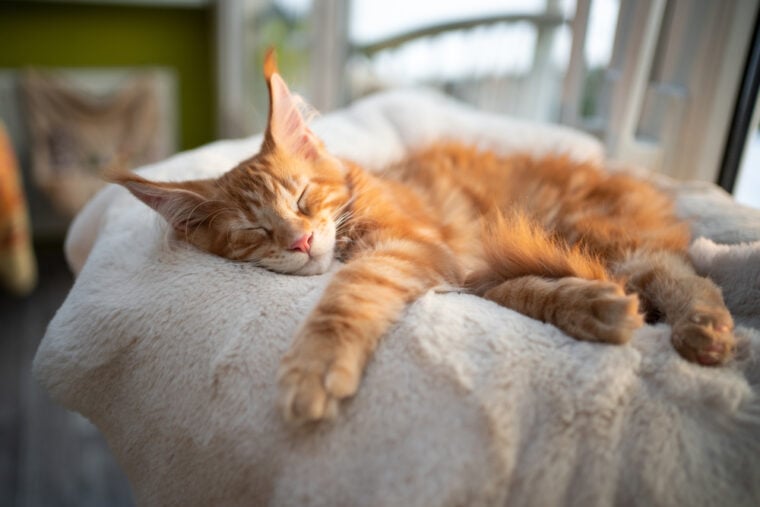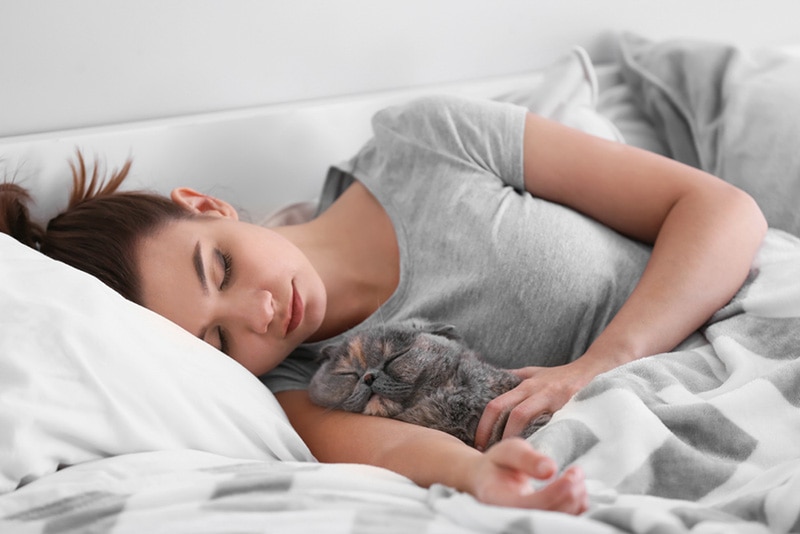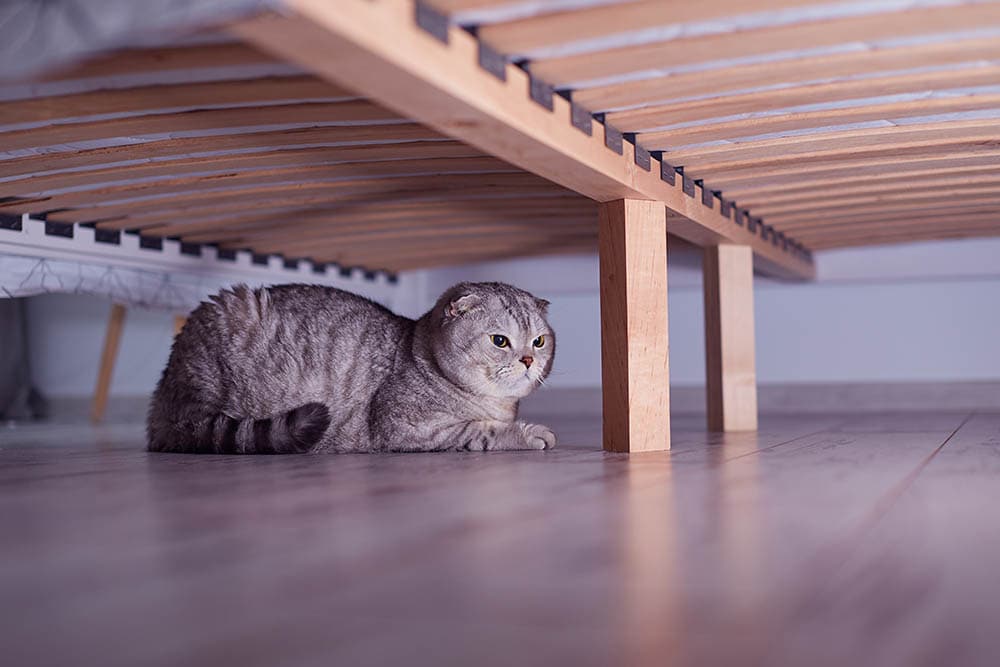
Click to Skip Ahead
If you’ve been imagining your kitty nestled in some hidden corner, dreaming away the winter months like a pint-sized bear, it’s time to wake up to reality. Cats do not hibernate.
Yours might be sleeping more when the temperature drops, but don’t mistake that for the big winter snooze reserved for some other members of the animal kingdom. But why the extra naps? Let’s get to the bottom of it.
What’s the Deal With Increased Cat Naps?
If you’re like many cat owners, you’ve probably noticed a trend: your cat sleeps more during winter. So, if they’re not hibernating, what are they doing? Simply put, cats are generally more lethargic during the winter. Their activity levels dip, and they sleep more, but this isn’t hibernation.
It’s just the feline way of dealing with less daylight and lower temperatures. In actual hibernation, metabolic processes slow to a crawl, but your cat is still very much aware of its surroundings and can spring to action when needed.

Lethargy: The Closest Cats Get to Hibernation
They don’t truly hibernate, but stray cats and wild cats exhibit something akin to a mini, short-term hibernation called lethargy. It’s not as extreme as the winter coma a bear goes into, but it’s a way to conserve energy. In this state, metabolic rates dip, and body temperature lowers (but only temporarily).
This helps them preserve energy for their usual prowling and prancing because hunting for food during winter is a bit like shopping on Christmas Eve—limited options and high competition. In a household setting, however, you’re more likely to see your cat camping out by the heater than engaging in any type of hibernation.
Feline Moods and Winter Blues
There is a belief that some cats can get what’s called “Seasonal Affective Disorder”? Not officially diagnosed, of course, but observations suggest that some cats do show a dip in mood during the dreary winter months. They might be eating more, playing less, or showing a lack of interest in activities they usually enjoy.

How to Keep Your Cat Happy and Healthy in Winter
Want to turn your cat’s frown upside-down? We have the vital tips you need to know.
Engage in Activity
Whether it’s investing in a new puzzle feeder or setting up a DIY obstacle course, keep that kitty moving! This will fend off boredom and help maintain a healthy weight, for starters. But keeping your cat occupied can make the cold months more closely reflect the activity-filled days of the summer months.

Soak Up the Sun
Though you can’t bring the sun indoors, you can at least position your cat’s favorite resting spots near windows. Pets in general enjoy sitting in sunlight beaming through the windows and on the floor. You might as well make it easy for your cat to access it.
Mind the Diet
With less activity, your cat won’t require as many calories. Be vigilant with portions to avoid unnecessary weight gain, as it can happen easily over the winter. The rare fluctuation in weight isn’t necessarily something to worry about. But if it puts your cat on the path to frequent weight gain, you’ll have a problem on your hands.

Winter Wonderland Indoors
Provide plenty of cozy blankets or a heated cat bed to keep your feline friend warm and snug. Even though you may keep the heat cranked up, pets like to nestle where they can. You don’t have to go overboard, either. Just a single blanket can make all the difference.
Conclusion
While cats don’t hibernate in the truest sense of the word, they do have their own “winter mode,” so to speak. It’s like a cozy, lazy weekend that lasts an entire season. But just as you shouldn’t spend your whole weekend on the couch, neither should your cat.
The winter months are an essential time to pay attention to your pet’s mental and physical health, ensuring they’re as sprightly in the snow as they are in the sunshine.
Featured Image Credit: Nils Jacobi, Shutterstock







